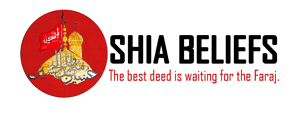Insurance and Its Challenges in Islam

What is meant by Insurance?
Insurance has become a fundamental aspect of modern financial systems, providing individuals and businesses with a mechanism to manage risk and ensure financial stability. However, the concept of insurance poses unique challenges and opportunities within the framework of Islamic finance. This article explores Islam’s principles, challenges, and modern insurance applications, delving into its alignment with Shariah (Islamic law) and the development of Takaful as an alternative to conventional insurance.
The Foundations of Islamic Finance and Insurance
Islamic finance is guided by the principles of Shariah, which are derived from the Quran, the Hadith, and centuries of scholarly interpretation. The primary objectives of Islamic finance are to ensure justice, fairness, and the equitable distribution of wealth. Several key principles underpin Islamic finance:
- Prohibition of Riba (Interest): Earning interest on loans is strictly forbidden in Islam, as it is considered exploitative and unjust. Instead, Islamic finance promotes profit-and-loss sharing arrangements.
- Avoidance of Gharar (Uncertainty): Contracts and transactions should be free from excessive uncertainty and ambiguity. This principle aims to prevent deceit and ensure transparency in financial dealings.
- Prohibition of Haram (Forbidden) Activities: Investments should not be made in activities or businesses that are considered haram, such as alcohol, gambling, and pork-related products.
- Risk Sharing: Risk should be shared equitably among all parties involved in a financial transaction. This principle fosters cooperation and discourages the transfer of risk from one party to another.
Conventional Insurance and Its Challenges in Islam
Conventional insurance, as practiced in many parts of the world, involves the payment of premiums by policyholders in exchange for coverage against specified risks. While this system provides financial protection and peace of mind, it raises several concerns from an Islamic perspective:
Riba (Interest): Conventional insurance companies often invest premiums in interest-bearing instruments, generating profits through interest. This practice is incompatible with the prohibition of riba in Islam.
Gharar (Uncertainty): The uncertainty inherent in insurance contracts, such as the timing and amount of claims, can be seen as a form of gharar. This uncertainty creates a potential for exploitation and injustice.
Maysir (Gambling): Insurance can be perceived as a form of gambling, where policyholders pay premiums with the hope of receiving a payout in the event of a loss. This element of speculation conflicts with the prohibition of maysir in Islam.
The Rise of Takaful: An Islamic Option for Insurance.
An Islamic Alternative to Insurance
To address the challenges posed by conventional insurance, Islamic scholars and financial experts have developed Takaful, an Islamic alternative to insurance that aligns with Shariah principles.The word “Takaful” is derived from the Arabic root “kafala,” meaning mutual guarantee or solidarity. Takaful operates on the principles of cooperation, shared responsibility, and risk sharing.
Principles of Takaful and Insurance
Takaful is built upon several key principles that distinguish it from conventional insurance:
- Mutual Cooperation:
As compared to insurance, Takaful operates as a cooperative system where participants contribute to a common pool to support one another in times of need. This mutual assistance aligns with the Islamic principle of brotherhood and solidarity.
- Risk Sharing:
Instead of transferring risk to an insurance company, Takaful participants share the risk collectively. Any surplus or deficit in the Takaful fund is shared among the participants, promoting a sense of collective responsibility.
- Transparency and Fairness:
Takaful contracts are designed to be transparent and free from ambiguity. Participants are fully aware of the terms and conditions, ensuring fairness and preventing exploitation.
- Shariah Compliance: Upholding Shariah principles.
Takaful funds are invested in Shariah-compliant assets, avoiding interest-bearing instruments and investments in haram activities. This adherence to Shariah principles ensures the ethical integrity of the Takaful system.
Types of Takaful Models
A variety of Takaful models have been created to meet diverse needs and preferences:
- Mudharabah (Profit Sharing):
In this model, the Takaful operator acts as a manager and invests the Takaful contributions in Shariah-compliant assets. Any profits generated are shared between the participants and the operator according to a predetermined ratio. This model aligns with the principle of profit-and-loss sharing.
- Wakalah (Agency):
In the Wakalah model, the Takaful operator acts as an agent on behalf of the participants, managing the Takaful fund for a fixed fee. Any surplus generated from the fund belongs to the participants, while the operator earns a fee for their services. This model emphasizes transparency and aligns with the principle of mutual cooperation.
- Hybrid Models:
Some Takaful operators combine elements of Mudharabah and Wakalah models to create hybrid structures that balance profit sharing and fixed fees. These hybrid models offer flexibility and cater to the diverse preferences of participants.
Benefits of Takaful instead of insurance
Takaful offers several benefits that make it an attractive alternative to conventional insurance:
- Shariah Compliance:
Takaful adheres to Islamic principles, providing a financial solution that aligns with the faith and values of Muslim participants.
- Ethical Investing:
Takaful funds are invested in ethical and socially responsible assets, avoiding industries and activities considered harmful or exploitative.
- Mutual Support:
Takaful fosters a sense of community and mutual support among participants, promoting the Islamic values of brotherhood and solidarity.
- Risk Sharing:
By sharing risks collectively, Takaful reduces the financial burden on individual participants and ensures a fair distribution of resources.
- Transparency:
Takaful contracts are designed to be transparent and free from ambiguity, ensuring fairness and preventing exploitation.
Challenges and Future Prospects
While Takaful has gained popularity and acceptance in many Muslim-majority countries, it still faces several challenges:
- Awareness and Education:
Many Muslims are unaware of Takaful and its benefits. Increasing awareness and educating the public about Takaful is essential for its growth and acceptance.
- Regulatory Framework:
Developing a robust regulatory framework that ensures the Shariah compliance of Takaful operations and protects the interests of participants is crucial.
- Market Penetration:
Takaful faces competition from well-established conventional insurance companies. Expanding market penetration and offering competitive products are necessary for Takaful to thrive.
- Product Innovation:
Continuously innovating and developing new Takaful products that cater to the evolving needs of participants is essential for the sustainability of the industry.
Despite these challenges, the prospects of Takaful are promising. As awareness grows and regulatory frameworks are strengthened, Takaful has the potential to become a mainstream financial solution that aligns with Islamic values and principles.
Insurance in Islam is a complex and nuanced topic, shaped by the principles of Shariah and the need for financial security. While conventional insurance poses challenges related to riba, gharar, and maysir, Takaful offers a Shariah-compliant alternative that emphasizes cooperation, risk sharing, and ethical investing. By adhering to the principles of transparency, fairness, and collective responsibility, Takaful provides a financial solution that aligns with the faith and values of Muslim participants. As the Takaful industry continues to grow and evolve, it holds the promise of providing ethical and equitable financial protection for Muslims worldwide, balancing faith with financial security.




